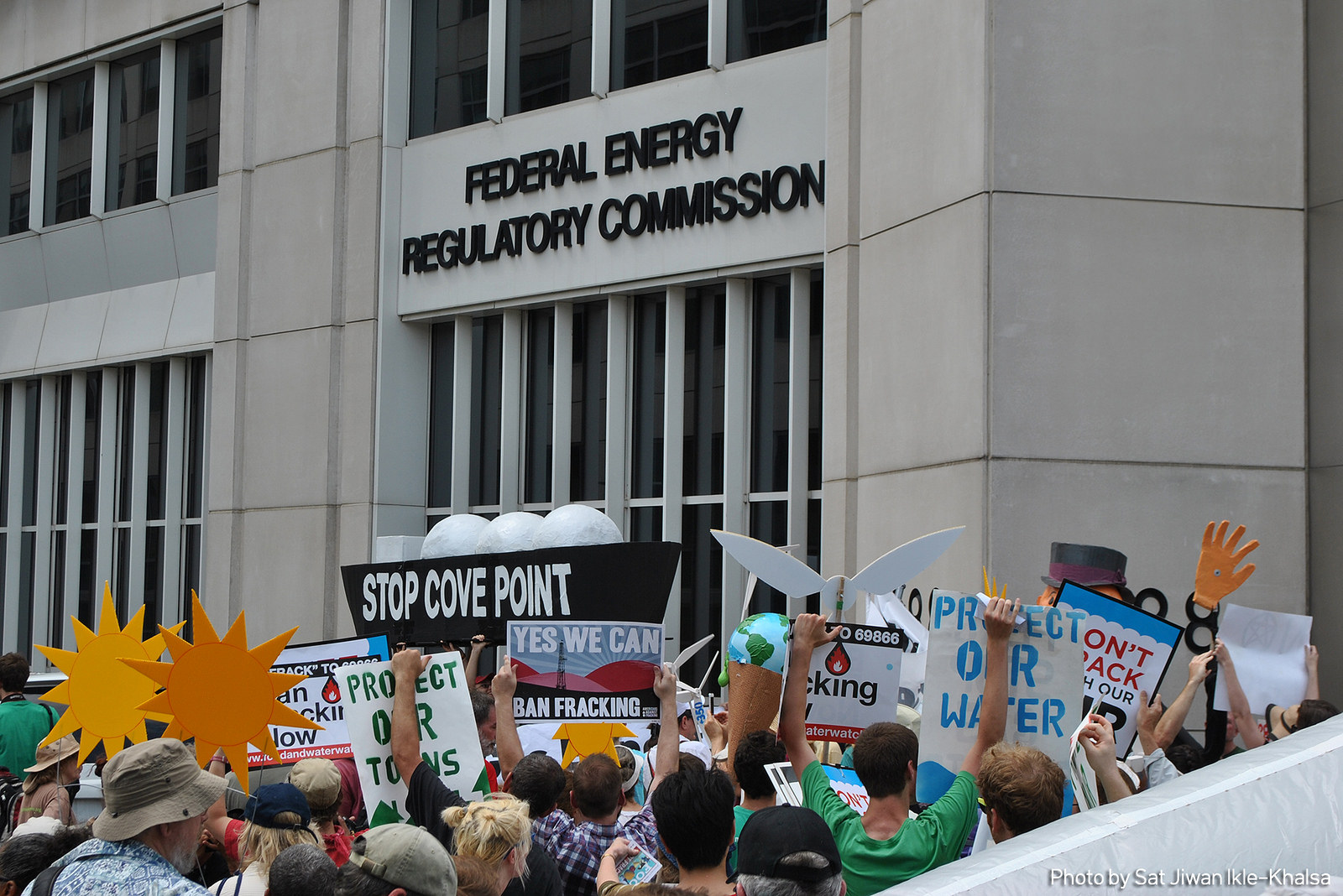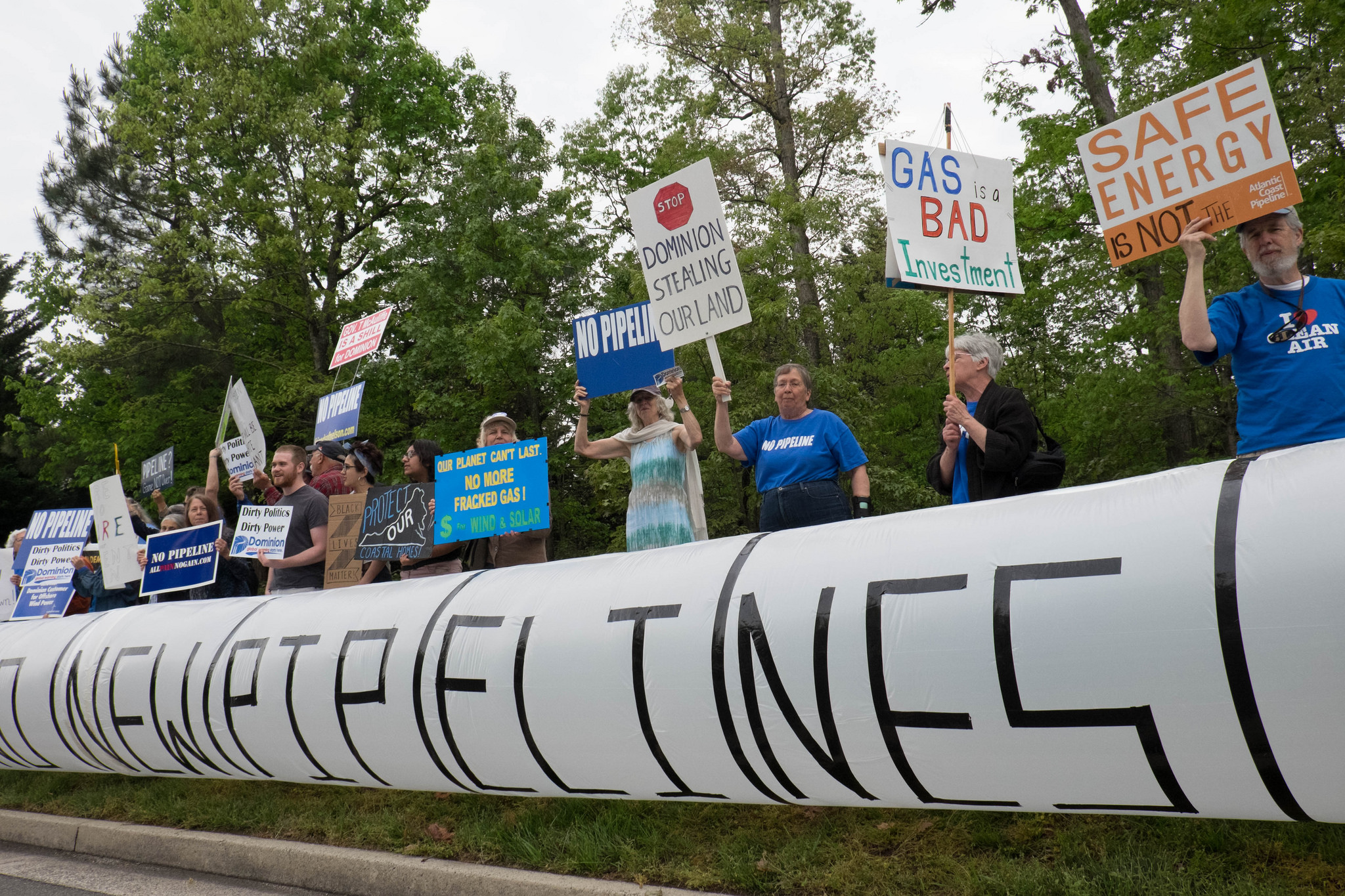Clean Power Plan Gives Va. Win-Win Way to Tackle Coastal Flooding While Saving Consumers Money
By joining proven regional system, Va. can cut emissions efficiently and generate $200 million annually to invest in solutions
RICHMOND, Va.—Today the Obama administration issued the first nationwide rules for cutting carbon emissions from power plants under the Clean Air Act. The “Clean Power Plan” standard represents the most significant federal action yet to tackle climate change, which is driving the sea-level rise already routinely flooding Virginia’s coastal communities. The final rules allow states to work together to develop regional compliance plans to reduce carbon dioxide pollution through 2030, and provide incentives to states who choose this option.
The Chesapeake Climate Action Network, joining a wide range of advocates across the state, believes that the best path forward for Virginia to meet the new federal standard is to join an existing nine-state pollution reduction system called the Regional Greenhouse Gas Initiative (RGGI).
By incentivizing investments in energy efficiency, the RGGI program is proven to save consumers money. By capping carbon pollution and requiring power plants to buy emissions permits, the market-based RGGI system would send much-needed funds back to Virginia. Virginia would receive about $200 million annually through 2030 to reinvest in solutions, such as flooding adaptation projects, energy efficiency, and job training.
Dawone Robinson, Virginia Policy Director at the Chesapeake Climate Action Network, had the following statement in response:
“Virginia has a win-win solution at its fingertips. Joining the nine-state Regional Greenhouse Gas Initiative is the smartest path forward for Virginia to lower emissions, while creating jobs and generating resources to invest in solutions. Over the past three years, RGGI has saved consumers $460 million, generated $1.30 billion in net economic value, and created 14,200 new jobs, all while reducing carbon pollution faster than the rest of the nation. Virginians currently pay some of the highest average electric bills in the country, primarily because we lag far behind on energy efficiency, a problem that RGGI resources would help solve.
“Notably, RGGI is the only plan on the table to jump-start a shared solution to sea-level rise in Virginia. Our coast needs a massive, coordinated investment to protect citizens, critical infrastructure, economic assets, and the world’s largest naval base from flooding that’s here now and only getting worse. Bipartisan legislation that would move Virginia into the RGGI system — a bill called the Virginia Coastal Protection Act — would help Virginia meet the requirements of the Clean Power Plan while creating the state’s first dedicated funding stream for flooding adaptation projects, which would also be a major job creator.
“The General Assembly has a huge opportunity to maximize the benefits of the Clean Power Plan by passing the Virginia Coastal Protection Act in 2016 and moving Virginia into RGGI.”
Background: The Virginia Coastal Protection Act is a bipartisan solution introduced in the 2015 General Assembly by Senator Donald McEachin of Richmond and Delegate Ron Villanueva of Virginia Beach. In 2015, the bill gained broad and high-profile support, including from the cities of Portsmouth and Virginia Beach, the Virginia Chapter of the American Association of Pediatrics, the Virginia Housing Coalition, and statewide environmental groups. The bill would join Virginia into RGGI and create the Commonwealth Resilience Fund to reinvest the funds generated into statewide climate solutions. A full half of the funds would help localities pay for flooding adaptation measures, while additional funds would support energy efficiency and clean energy programs statewide, as well as economic development in Southwest Virginia.
Contact:
Dawone Robinson, 804-767-8983, dawone@chesapeakeclimate.org
Kelly Trout, 240-396-2022, kelly@chesapeakeclimate.org
###
The Chesapeake Climate Action Network is the biggest and oldest grassroots organization dedicated to fighting climate change in Virginia, Maryland, and Washington, D.C. We’re building a powerful movement to shift our region away from climate-harming fossil fuels and to clean energy solutions.




